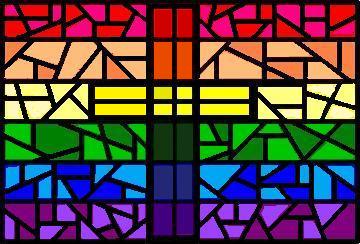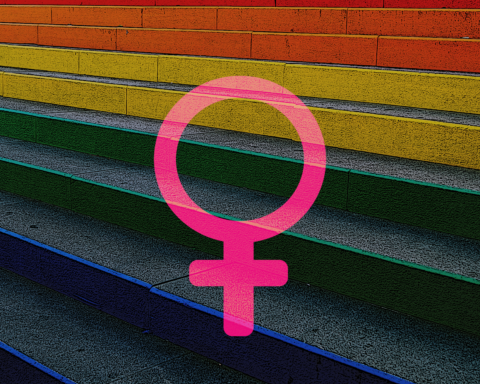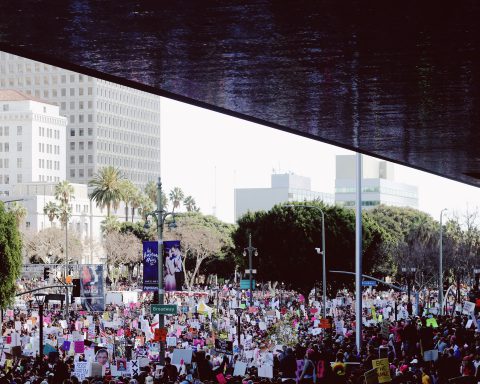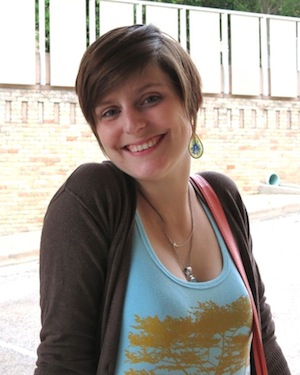 The author of this article has asked to remain anonymous so that the prejudice of others does not blind them to seeing her gifts for ministry during her process of preparation and ordination. Let us take this as a reminder that in many places and situations, it is still not safe for people to be themselves.
The author of this article has asked to remain anonymous so that the prejudice of others does not blind them to seeing her gifts for ministry during her process of preparation and ordination. Let us take this as a reminder that in many places and situations, it is still not safe for people to be themselves.
When I was growing up, my church taught me several things about who I am and who God is. Above all else, I was taught that God made me just the way I am, that God loves me just the way I am, and that it is okay to be myself. I am a beloved child of God. I am fearfully and wonderfully made. Perhaps you were told something similar as a child. If you’re lucky, you’re still hearing the same message from the church as an adult. Now that I’ve grown up, I have noticed that the message isn’t quite the same – at least not for me. This isn’t to say that I no longer believe myself to be a beloved child of God who is loved just the way she is – I know that’s true, and there’s nothing anyone can say to make me think otherwise. It’s also not to say that the church has changed its message. In fact, I know that many churches continue to say those exact words to their children and adults alike. You see, that’s the problem. As a church, we say the right words, but the message we deliver to many of our members, especially those who are LGBTQ, is drastically different.
The PC(USA) just observed the two-year anniversary of the passage of Amendment 10-A, which changed our constitution to make possible the full participation of LGBTQ people in all ordered ministries of the church. Those who voted in favor of this amendment may be celebrating this new era of the Presbyterian Church, one in which all those who are called by God are able to serve freely and honestly. As for me – a bisexual person going through the ordination process – I am scared. Before I began the ordination process two years ago, I was completely out as bisexual and refused to set foot near the closet again. Now, I am open while at seminary and silent while at home. I write about my experiences anonymously (as I’m doing right now), and I leave anything involving LGBTQ ministry off my presbytery paperwork, even though it’s a ministry to which I feel called.
___________________________________________
The church may tell me I’m loved just the way I am, but how can I know that in a church that won’t even use the word for what I am?
___________________________________________
Sure, I know God loves me. I love me; my parents love me; my girlfriend loves me; my church loves me. So many people love me, yet even today, I don’t know how the larger church feels. I haven’t come out in my ordination process because I fear that being honest would mean that people would ignore my gifts, ignore my calling, and decide that I’m “unfit for ministry” based solely on my sexual orientation. Even though 10-A has been part of the Book of Order the entire time I’ve been under care, I still don’t feel like I am fully accepted. I could switch presbyteries, but that would mean leaving the support of my home church – the very people who raised me and taught me to answer the call of the Lord. I can be honest about the truth of Jesus Christ, but I can’t mention the joy of pastoring a child through coming out or mention my girlfriend when I talk about my support system. The church may say that I’m loved just the way I am, but I certainly don’t feel that way.
This isn’t to say that welcoming congregations don’t exist. I know many welcoming congregations. My home church has been one of the most supportive communities I’ve been a part of. Yet even at these “welcoming congregations” – and I hate to criticize people who are accepting – the words and message still aren’t quite the same. It’s always exciting to hear churches talk about God’s love, regardless of whether someone is black or white, male or female, gay or straight. The problem is that not everyone is gay or straight; not everyone is male or female. Some people fall somewhere in between or outside of those spectrums entirely. I know that people are trying to be inclusive, but not hearing myself affirmed in church undermines the idea that we are all beloved.
As a bisexual, hearing inclusive churches talk about gay and straight feels strange; it’s like constantly talking about black and white when people in your congregation are multi-ethnic or Asian or Latino. I understand the good intentions, but they don’t change the fact that every time I hear “gay or straight” language, I have to translate – by “gay,” I tell myself, they mean everyone who is “not straight” – and hope that maybe they’re including me, if they even understand what “bisexual” means. I imagine my trans, genderqueer, and intersex friends feel something similar, if not worse; I’ve only heard any of those words used in a church service once. The church may tell me I’m loved just the way I am, but how can I know that in a church that won’t even use the word for what I am?
___________________________________________
The church has been telling its members that God loves them for a very long time. I think it’s about time we made sure that our actions tell the same message.
___________________________________________
Growing up, the church taught me that God loves me. As an adult, I would like to offer some suggestions as to how the church can show that love to myself and people like me. First, never underestimate the power of words. Yes, I am talking about the Word, but also the other words we use to talk about it. When you talk about Christ’s love, speak in more than just pithy binaries. If that kind of list sounds too cumbersome, maybe just say that we’re loved regardless of race, sex, gender, and orientation. If you’re afraid of leaving someone out, just say we’re loved for exactly who we are, whoever that may be. Make room in worship and Bible study for the everyone’s stories. Really listen to those stories, and look for the spark of God whoever, however, and wherever that person is.
 Above all else, when someone is brave enough to be exactly who they are, please honor them. I know there will always be people who take issue with LGBTQ ordination, but rather than writing off someone based on one part of their identity, why not try actually getting to know them? Challenge yourself to see God in that person, to judge them by their spiritual gifts rather than by that one piece of information. If you’re already doing that, speak up! Let us know that it’s okay to talk to you, that we are safe in your presence, that we don’t have to hide. The church has been telling its members that God loves them for a very long time. I think it’s about time we made sure that our actions tell the same message.
Above all else, when someone is brave enough to be exactly who they are, please honor them. I know there will always be people who take issue with LGBTQ ordination, but rather than writing off someone based on one part of their identity, why not try actually getting to know them? Challenge yourself to see God in that person, to judge them by their spiritual gifts rather than by that one piece of information. If you’re already doing that, speak up! Let us know that it’s okay to talk to you, that we are safe in your presence, that we don’t have to hide. The church has been telling its members that God loves them for a very long time. I think it’s about time we made sure that our actions tell the same message.
Read more articles in this series.






Unbound Social